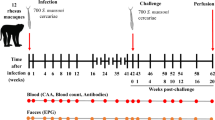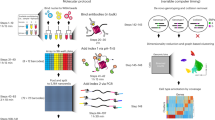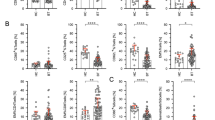Abstract
DESTRUCTION of antibody-coated mammalian target cells by normal human lymphocytes demonstrated by release of 51Cr-chromate is a phenomenon characterised by its rapidity of action and by the very small amounts of antibody required. It seems unlikely that such a mechanism destroys solely mammalian target cells, and possibly it has a role in immunity to parasitic infections. Butterworth et al.1 demonstrated that normal human blood cells destroy schistosomula coated with antibody from infected patients.
This is a preview of subscription content, access via your institution
Access options
Subscribe to this journal
Receive 51 print issues and online access
$199.00 per year
only $3.90 per issue
Buy this article
- Purchase on SpringerLink
- Instant access to full article PDF
Prices may be subject to local taxes which are calculated during checkout
Similar content being viewed by others
References
Butterworth, A. E., Sturrock, R. F., Houba, V., and Rees, P. H., Nature, 252, 503 (1974).
Baker, J. R., Green, S. M., Chaloner, L. A., and Gaborak, M., Parasitology, 65, 251 (1972).
Author information
Authors and Affiliations
Rights and permissions
About this article
Cite this article
MKWANANZI, J., FRANKS, D. & BAKER, J. Cytotoxicity of antibody-coated trypanosomes by normal human lymphoid cells. Nature 259, 403–404 (1976). https://doi.org/10.1038/259403a0
Received:
Accepted:
Issue date:
DOI: https://doi.org/10.1038/259403a0
This article is cited by
-
Antibody-dependent cell-mediated cytotoxicity againstEscherichia coli O antigens
European Journal of Clinical Microbiology (1982)
-
Eosinophils and not lymphoid K cells kill Trypanosoma cruzi epimastigotes
Nature (1977)



